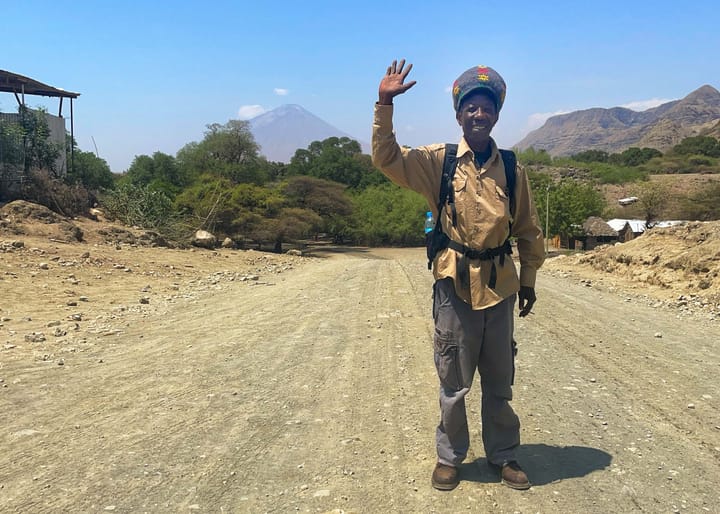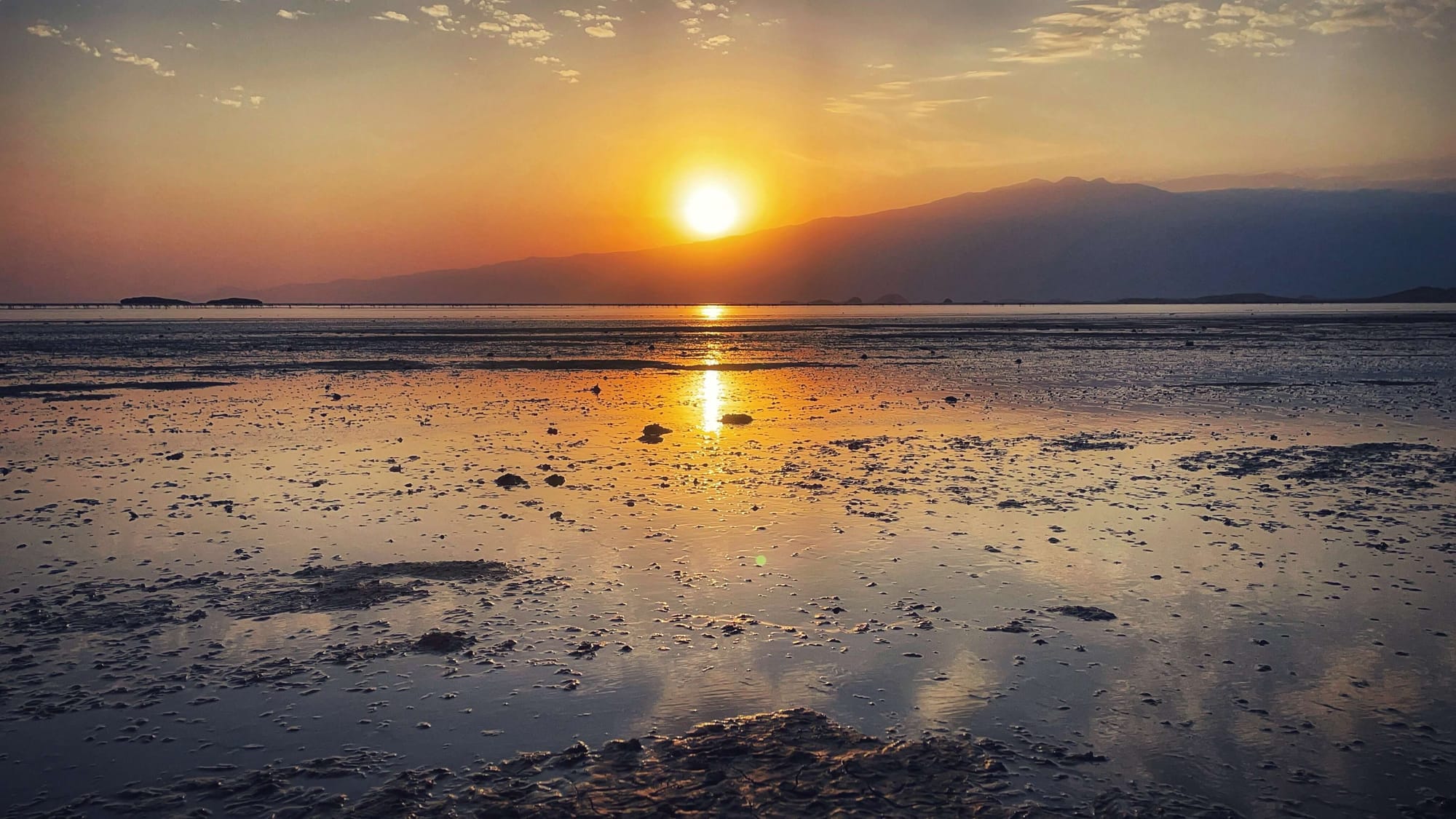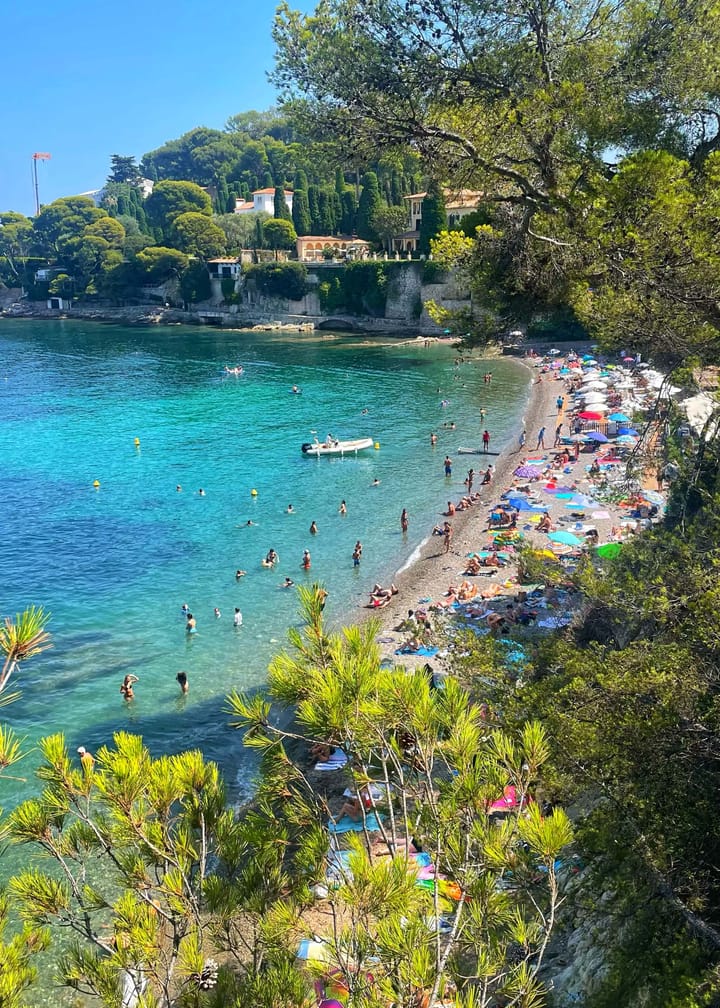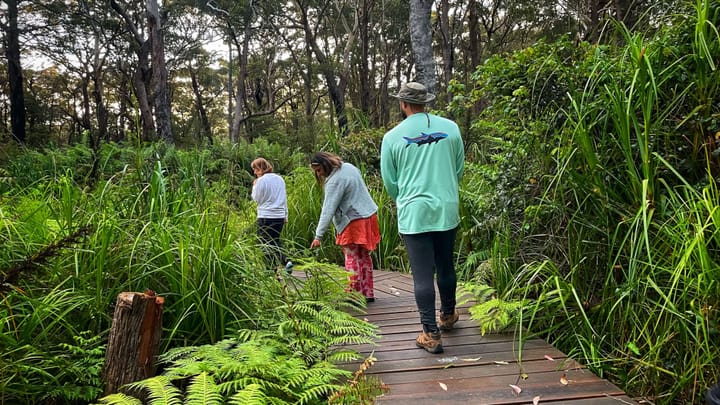Something happened where when I knew it would be over, I started appreciating the moments I had left.
It looked like this: pulling over to the side of the road just to linger with the view. Taking the detour “just to see” what was there. And spending nights in bed writing down as much as I could remember, before it slipped away.
I started writing down a list of names, that I would add to as I continued along the journey after Africa. The names of people who had made an impression on me, who I didn’t want to forget. I labeled the list “Kindness.”
What is “kindness”? Maybe you’ve heard the saying that people in New York are “kind but not nice,” and people in the South are “nice but not kind.” It’s another way of saying, “don’t mistake directness for being rude,” or “there’s a difference between people who will help you and people who want to appear to be helpful.”
I think of this when I reflect on the feeling of kindness I experienced in Africa, moments where someone extended help to me “just because” – without the expectation of receiving anything in return. I felt kindness in smiles, in the glances of eyes seeking connection or affirmation, in the moments, unspoken, that said are we thinking the same thing? I felt it in moments where someone looked out for me, tried to make sure I wasn’t taken advantage of. I felt it in moments where I wasn’t taken advantage of, when I could have been.
Every time I received kindness, it felt like a weight disappeared from my shoulders. Kindness was being able to lay down the burden of protecting myself at the feet of someone who offered to take care of me.
I had a particularly challenging time in Tanzania. It was the place where I made core memories – Kilimanjaro! – but it was also the place that broke me a little. Perhaps because of its high-ticket tourism – Tanzania is also home to the Serengeti – the hustlers are hustling. Tanzania was where I learned that it was better to pretend to be deaf than to say “no.”
And yet, Tanzania was also where many names populated my kindness list. Perhaps because of the hardness of handling the hustlers, the fact that anyone would treat me differently stood out as a moment to remember.
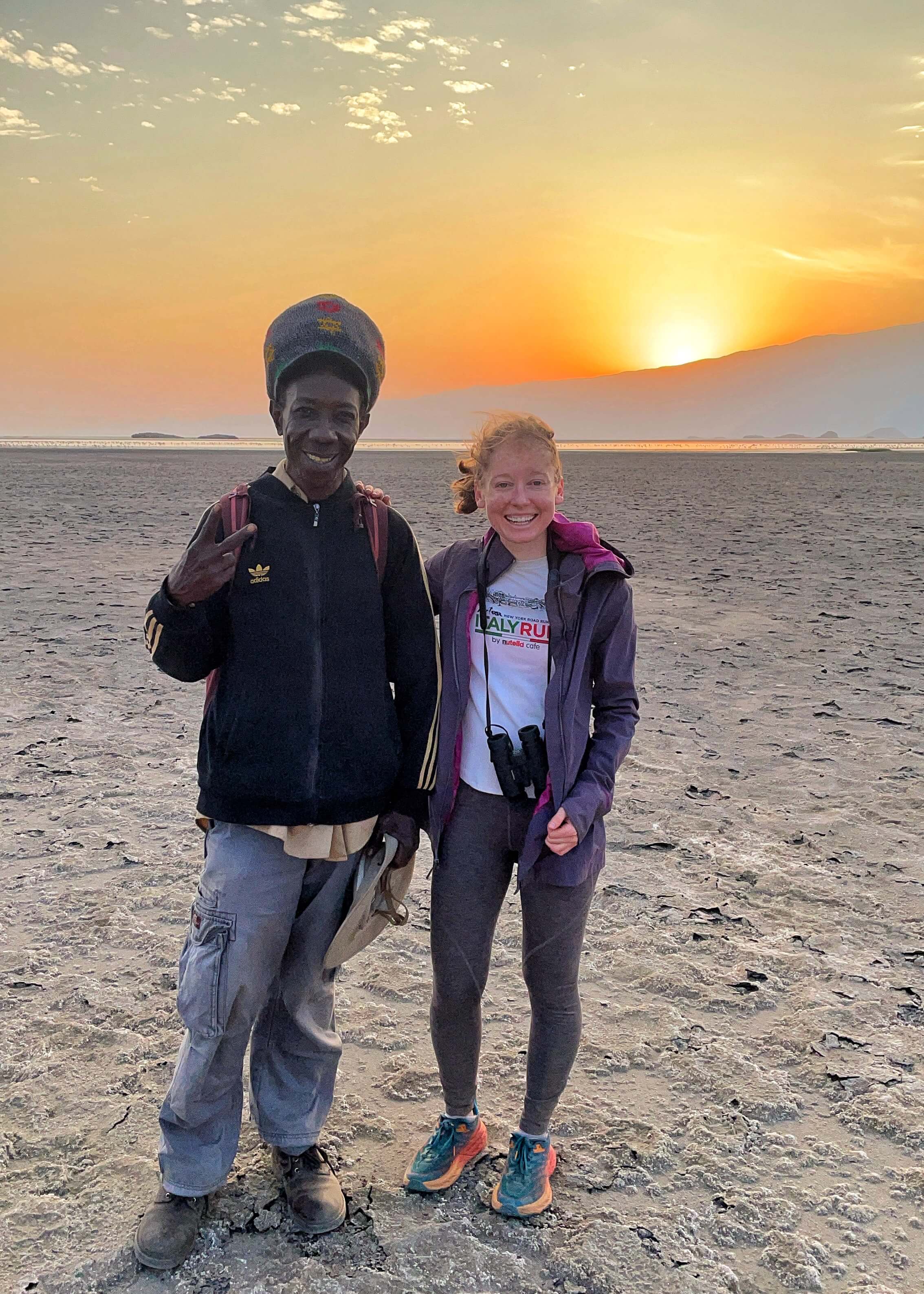
I will remember Rasta Carlos, my “hakuna matata” tour guide, who helped me even when I wasn’t paying him to. We ran into each other on the street in Arusha, and he carried my bag the rest of the way to the bus, making sure I got on the right one to Moshi.
I will remember Jackie, the chef at my homestay in Moshi. She took me to the market to buy vegetables, and made sure that I paid a fair price. She helped me figure out where I was going, and told me how much it should cost to get there.
We cooked alongside each other in the kitchen. She smiled at me. She asked me how it was going. She laughed at my impressions of the street hustlers in Arusha, the men who would follow me for miles to try to sell me anything. "Hi, where you from? I am a tour guide, buy this watch, go to this restaurant..." If they could charge me for the air, they would. Jackie bent over clutching her stomach, laughing. But she also apologized for her fellow Tanzanians. She could see how their sales pitches wore me down.
One day Jackie put her hand on my shoulder and called me her friend and I felt like she really meant it.
I will remember Simba, the owner of the homestay in Moshi. When I left for Kilimanjaro, he gave me a deep embrace. “You are welcome here, if you wish to stay.” He was very good looking, notwithstanding. But I didn’t come to Africa to find a husband, I came to find myself. And so I left.
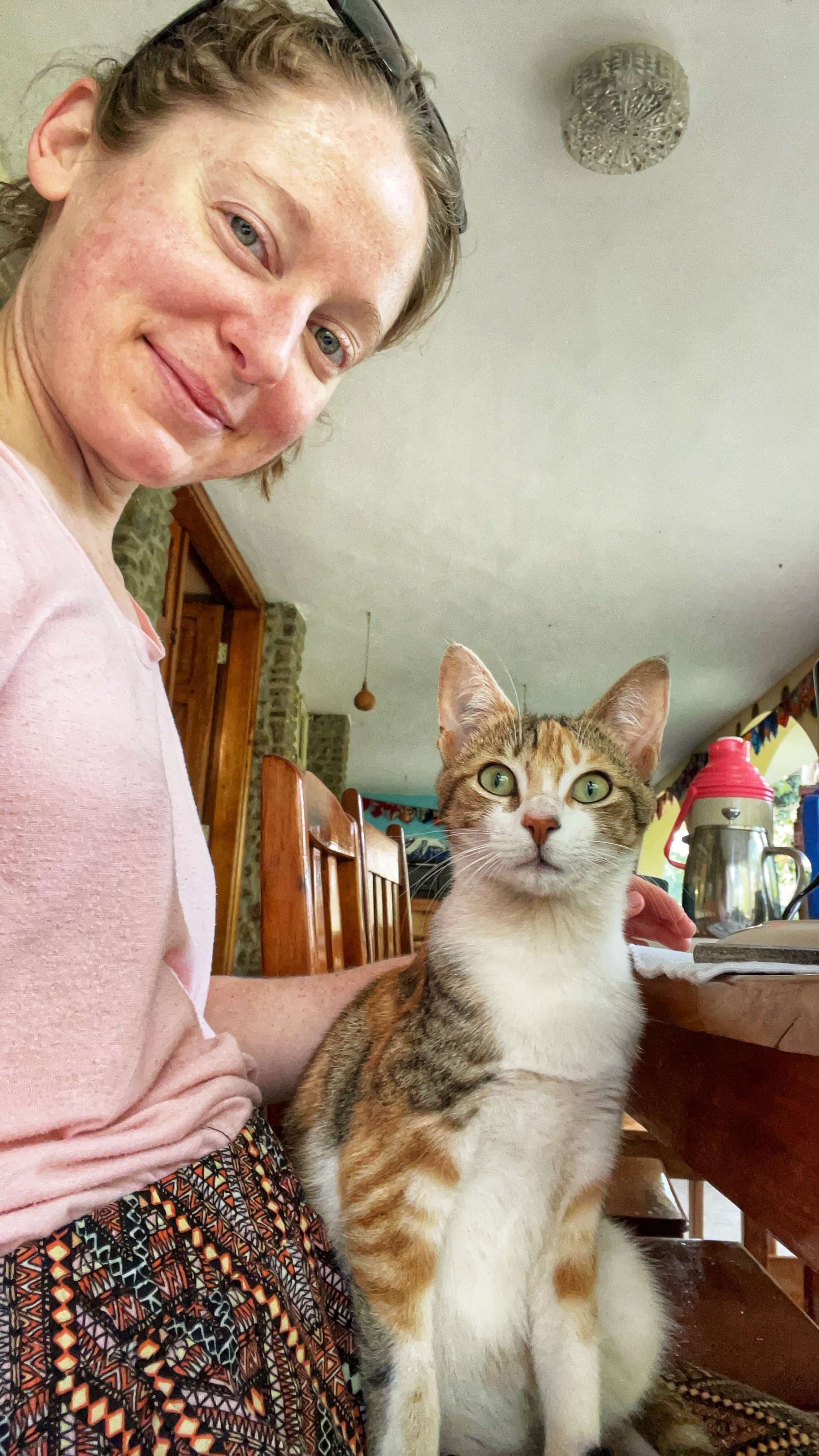
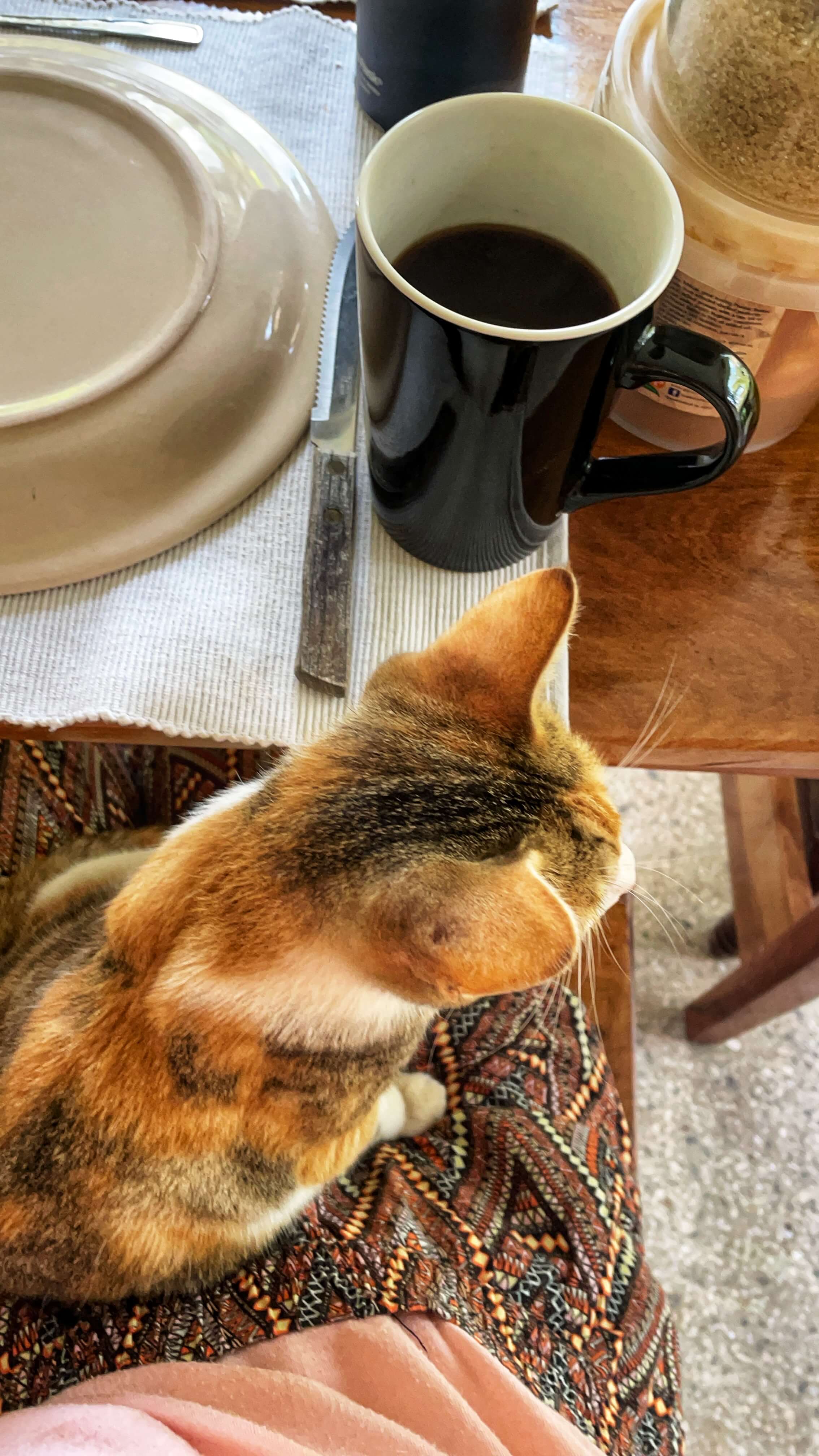
Breakfast (prepared by Jackie) with Fraha.
Simba had a dog, Bahati (“luck” in Swahili) and a cat, Fraha (“joy” in Swahili). They did not want me to go either. Fraha took to my lap in the mornings at breakfast. Bahati took notice and tried for my lap when I was reading on the cushions in the afternoons, but he miscalculated his size and the available surface area of my lap, so he took to curling up against me on my yoga mat while I was in child’s pose. I got him his own mat and he would watch me do yoga, until it was time for savasana, which we would both do together.
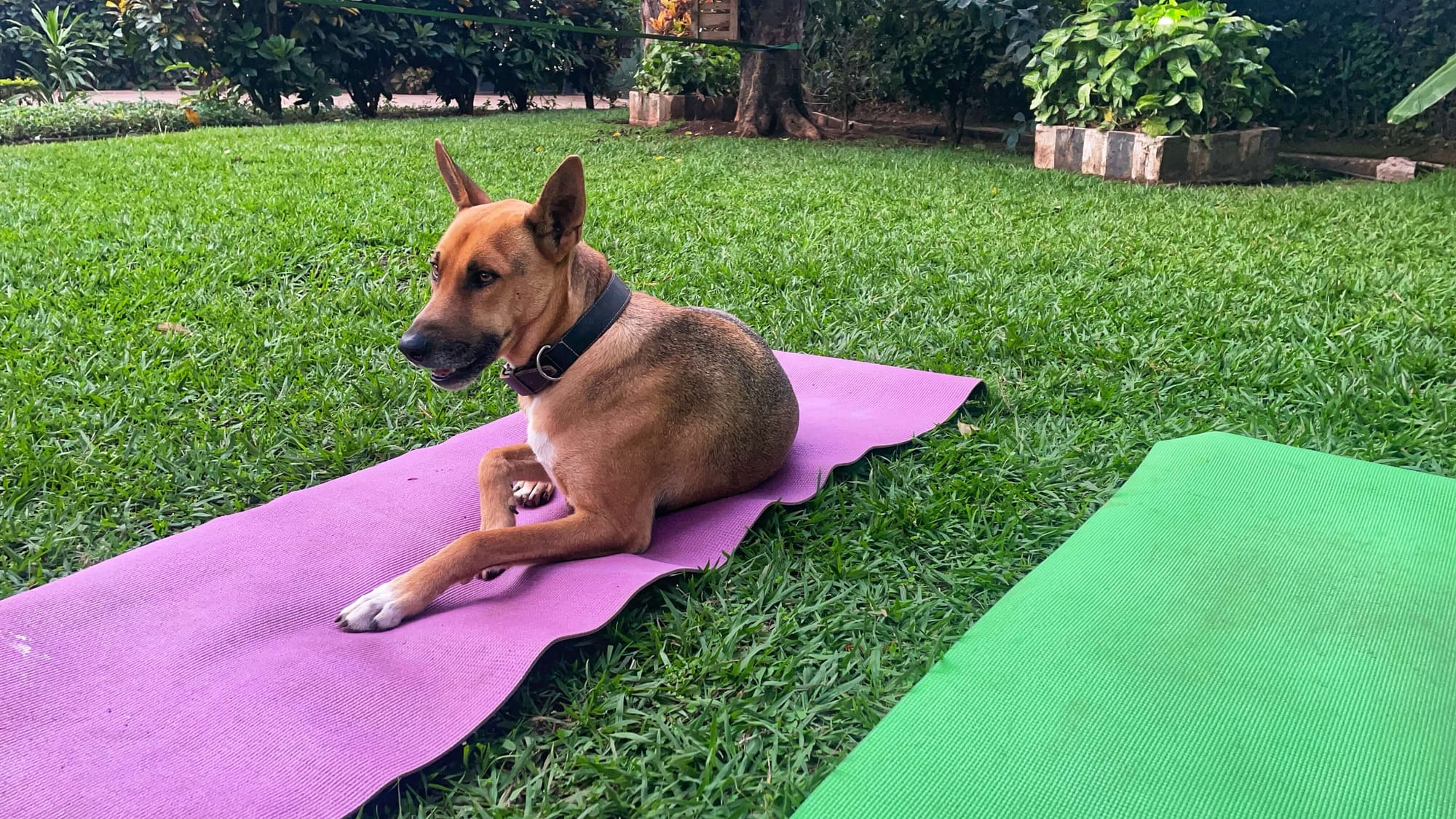
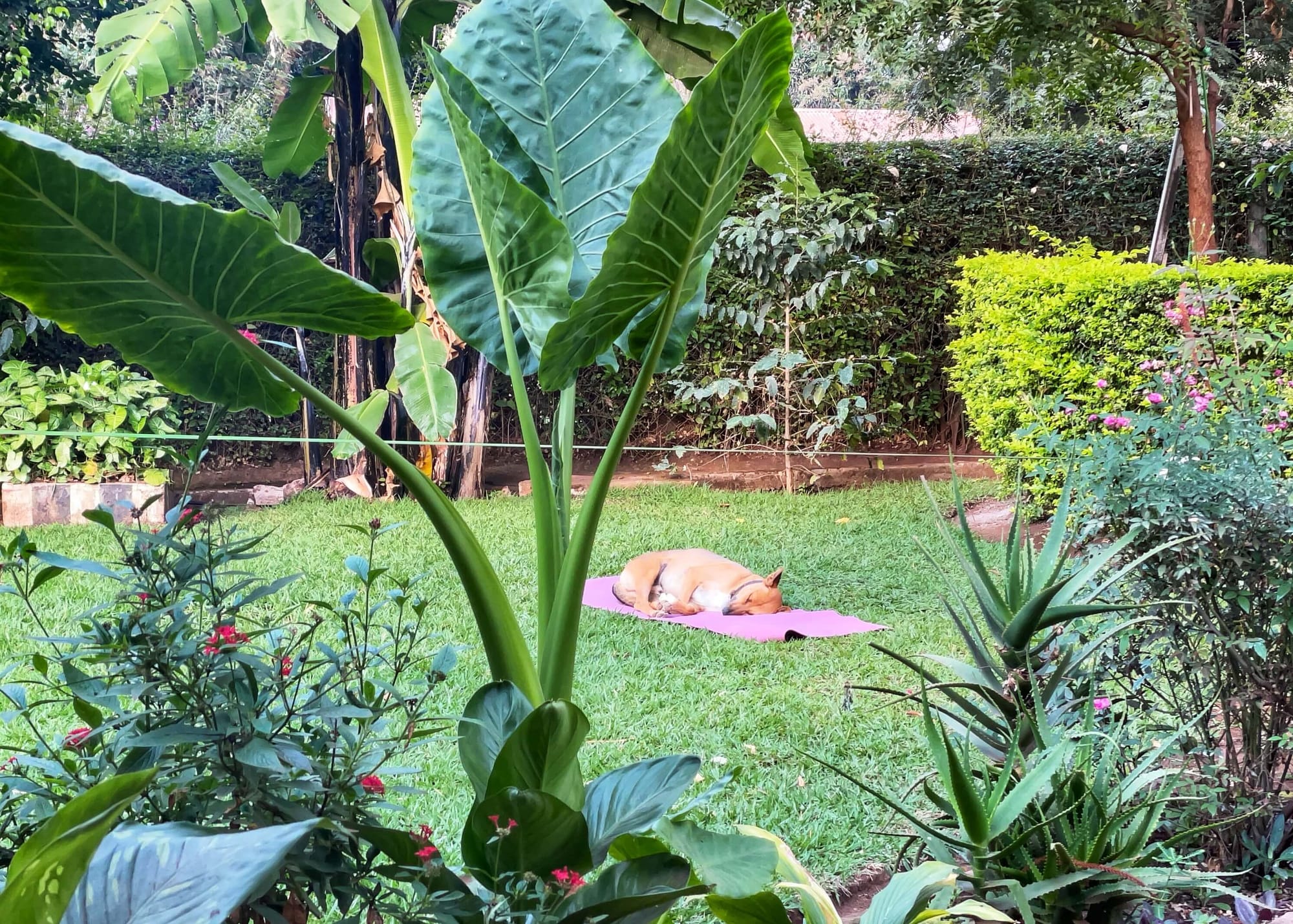
Yoga in the garden with Bahati.
When the car came to take me to Kilimanjaro, Bahati put his paws around my ankle, trying to trap me. Simba laughed, not realizing until that moment that his dog had taken to me.
I will also remember Sophia, a precocious, 13-year-old German girl who I met at Simba’s place. She was on holiday with her family, but she had her own agenda. She had a way of asking questions, getting to know you, and then insisting on making the friendship official by exchanging numbers. When I woke up the morning that I was to leave, she had slipped a hand-written note under my door, wishing me well on my journey, thanking me for the time that I spent with her, and inviting me to her (parents’) home, should I ever find myself in Germany. I smiled at the gesture, the confidence, the spark of a young soul that I could envision burning bright in the future.
Maybe it was something about Moshi, the town at the base of Kilimanjaro. Maybe it was Kilimanjaro, the aura of the mountain that permeated everything around it. Maybe it was the contrast of experiences. Maybe it was the people, the place, or maybe it was me. Whatever it was that caused this concentration of kindnesses, I will remember the comfort of feeling cared for.
I desire to find more of that in my next chapter.
